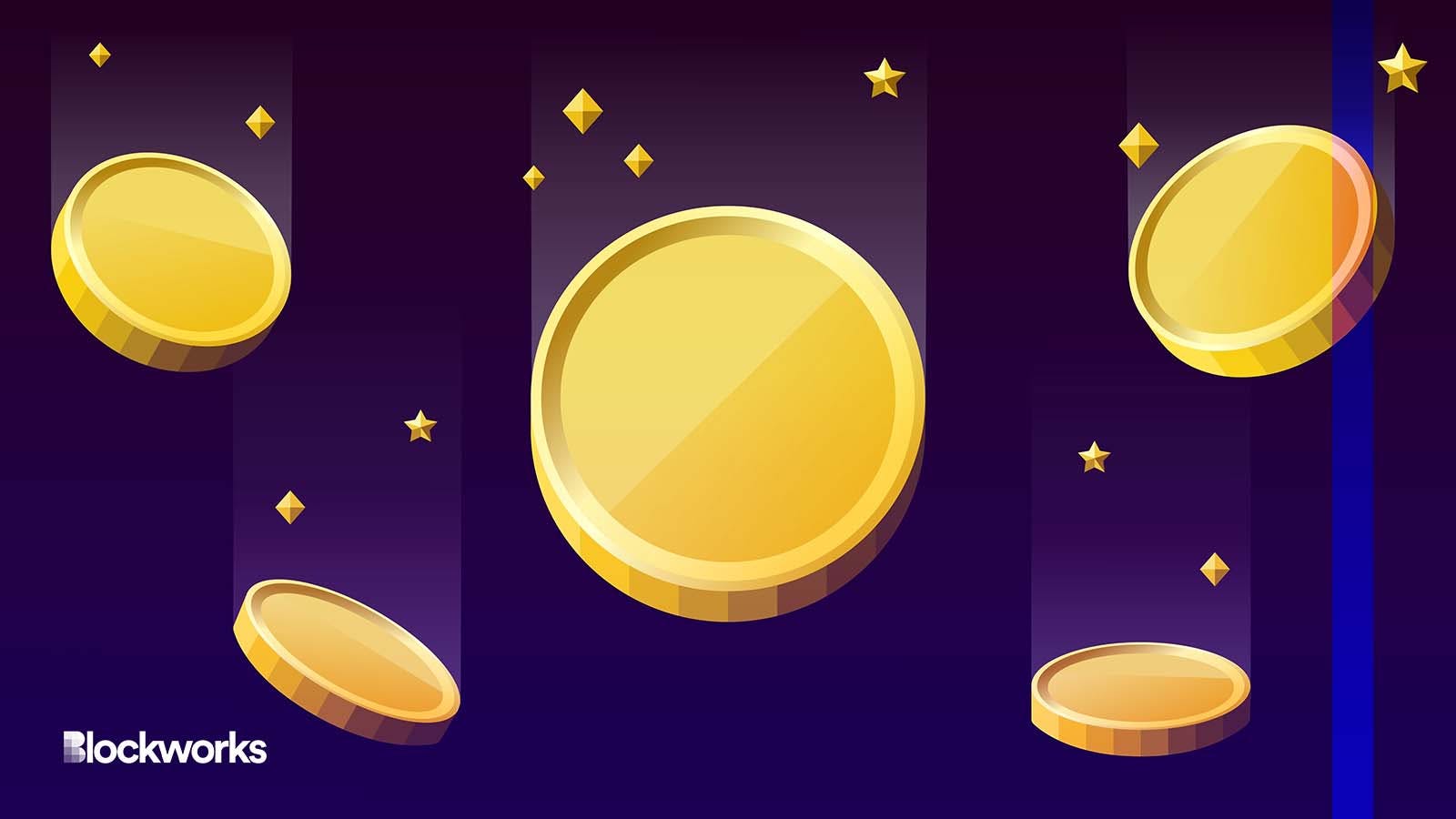Asset Tokenization Is Shaping Up To Be Crypto’s Theme of the Year
Goldman Sachs, Hamilton Lane and Siemens are among institutions choosing to represent real-world assets as digital tokens on a blockchain

Inactive design/Shutterstock.com modified by Blockworks
Blockchain is rapidly becoming a game changer for financial institutions as an increasing number of legacy firms are sinking their teeth into digital assets.
Tokenization, the process of imbuing ownership and other rights onto a blockchain-powered asset, is happening fast across several blockchain ecosystems. So far in 2023, more than five corporations are utilizing the process to expand efficiencies of various transactions.
Why are they doing this? The current traditional model for buying, selling and trading company shares is somewhat archaic, according to Bob Ras, co-founder of XRP protocol Sologenic.
Legacy methods involve restrictions that preclude trading of assets: limited market hours and slow settlement times. And the cost of continuing to rely on these traditional rails can become excessive, Ras said.
“Imagine creating a digital representation of Tesla or Microsoft stock – tokenizing them – and enabling them to be traded 24/7 on-chain while even allowing investors to trade a fraction of the tokenized stock,” Ras told Blockworks.
“Moreover, the costs would be a fraction of what they are now because, instead of relying on the whims of trusted third parties, you have an underlying blockchain that can immediately foster audibility and transparency.”
He forecasts that the value of tokenized assets could grow to be in the trillions of dollars over the following decades.
Here are some names that recently announced asset tokenization projects:
- Goldman Sachs launches GS DAP
In January, Goldman Sachs announced its Digital Asset Platform (DAP) went live. The platform is built using a private (permissioned) blockchain stack known as Canton, built by Digital Asset.
Goldman Sachs will use it to enable issuance, registration, settlement and custody of digital assets. The European Investment Bank (EIB) was the first institution to collaborate with the platform for its first digital bond.
The EIB has already issued its second euro-denominated digital bond on a private blockchain in collaboration with Goldman Sachs.
- Hamilton Lane tokenizes investment products in the US
Global investment manager Hamilton Lane announced that some products would be tokenized via the Polygon blockchain. Through a partnership with digital asset securities firm Securitize, Hamilton Lane’s flagship direct equity fund will be available to certain US investors through new tokenized feeder funds, providing exposure to direct equities, private credit and secondary transactions.
These will be managed by Securitize’s digital asset management arm, Securities Capital. Minimum investment is set at $20,000.
- Hong Kong issues tokenized green bond
Hong Kong’s government said in February it had successfully issued its first tokenized green bond worth some $100 million under its Green Bond programme. Green bonds are meant to finance environment-friendly or climate-focused projects.
The Central Moneymarkets Unit used Goldman Sachs’ tokenisation protocol GS DAP for the issuance, and the bond was underwritten by four banks priced at a 4.05% yield.
- Siemens issues €60M digital bond on Polygon
German manufacturing giant Seimens issued its first digital bond on Polygon, which has a one-year maturity. Although the bond was issued on-chain, proceeds from investors were collected via traditional banking channels. Siemens spotlighted its efforts, saying the move away from paper toward blockchain would make transactions faster and more efficient.
- Swarm launches fully-backed asset tokens on Polygon
DeFi infrastructure firm Swarm Markets launched tradable, DeFi-compatible stocks and bonds on Polygon this month. These tokenized securities would bring Apple and Tesla stocks, and two US Treasury bond ETFs to DeFi, however they won’t be available to US investors.
There is no minimum investment and the products are marketed to both retail and institutional investors. More stocks and other assets are expected to be added to the offering.
The tokenization of assets is still underappreciated by many market observers, as they might be focused primarily on the tokens themselves, according to Daniela Barbosa, executive director of Hyperledger Foundation.
“But tokenizing a wide variety of assets – from equities and index funds to real estate and carbon credits – offers huge potential in terms of not only enhancing transparency, auditability and efficiency, but also access to people who otherwise might not be able to tap into traditional markets,” Barbosa told Blockworks.
“Zooming out, if done at scale, these kinds of transactions are poised to make markets far more efficient.”
Get the news in your inbox. Explore Blockworks newsletters:
- The Breakdown: Decoding crypto and the markets. Daily.
- 0xResearch: Alpha in your inbox. Think like an analyst.






